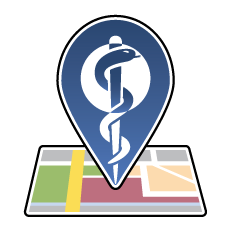Twitter: @CDCgov
Facebook: @CDC
Website: www.cdc.gov/antibiotic-use/week/index.html
U.S. Antibiotic Awareness Week is an annual one-week observance that gives participating organizations an opportunity to raise awareness of the importance of appropriate antibiotic use to combat the threat of antibiotic resistance.
Be Antibiotics Aware, a CDC educational effort, complements U.S. Antibiotic Awareness Week by providing partners with up-to-date information to help improve human antibiotic prescribing and use in the United States.
Messages for Consumers
Antibiotics save lives. When a patient needs antibiotics, the benefits outweigh the risks of side effects and antibiotic resistance.
Antibiotics aren’t always the answer. Everyone can help improve antibiotic prescribing and use. Improving the way healthcare professionals prescribe antibiotics, and the way we take antibiotics, helps keep us healthy now, helps fight antibiotic resistance, and ensures that these lifesaving antibiotics will be available for future generations.
Antibiotics do not work on viruses, such as those that cause colds, flu, bronchitis, or runny noses, even if the mucus is thick, yellow, or green.
Antibiotics are only needed for treating infections caused by bacteria, but even some bacterial infections get better without antibiotics. Antibiotics aren’t needed for many sinus infections and some ear infections.
An antibiotic will not make you feel better if you have a virus. Respiratory viruses usually go away in a week or two without treatment. Ask your healthcare professional about the best way to feel better while your body fights off the virus.
When antibiotics aren’t needed, they won’t help you, and the side effects could still cause harm. Side effects range from minor to very severe health problems. When you need antibiotics for a bacterial infection, then the benefits usually outweigh the risk of side effects.
Taking antibiotics can lead to antibiotic resistance. Antibiotic resistance occurs when bacteria develop the ability to defeat the drugs designed to kill them.
If you need antibiotics, take them exactly as prescribed. Talk with your doctor if you have any questions about your antibiotics.
Talk with your doctor if you develop any side effects, especially severe diarrhea, since that could be a Clostridioides difficile (C. difficile or C. diff) infection, which needs to be treated.
Do your best to stay healthy and keep others healthy by cleaning hands, covering coughs, staying home when sick, and getting recommended vaccines, such as the flu vaccine.
Centers for Disease Control and Prevention
1600 Clifton Rd.
Atlanta, GA 30333
1-800-CDC-INFO
antibiotic-use@cdc.gov
www.cdc.gov/antibiotic-use/week/index.html
Materials available
Contact: Austyn Dukes

